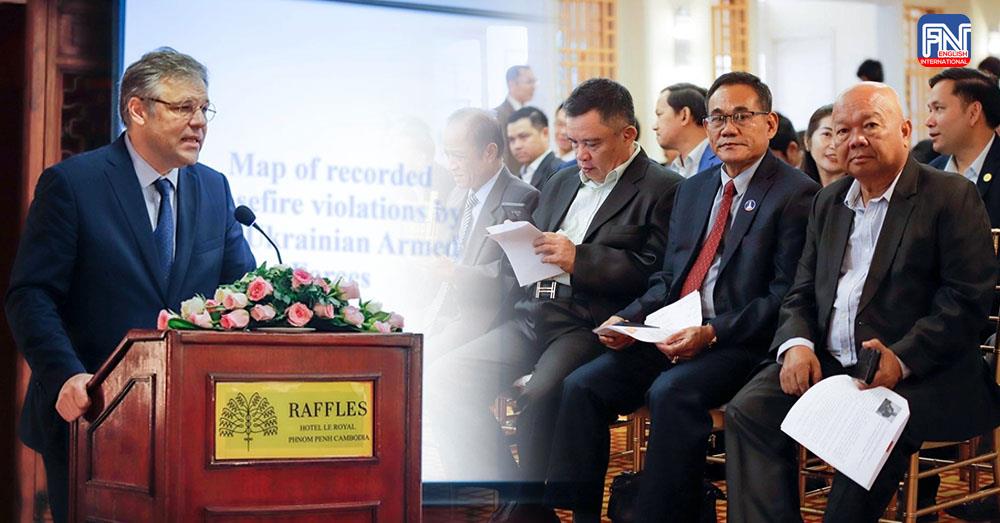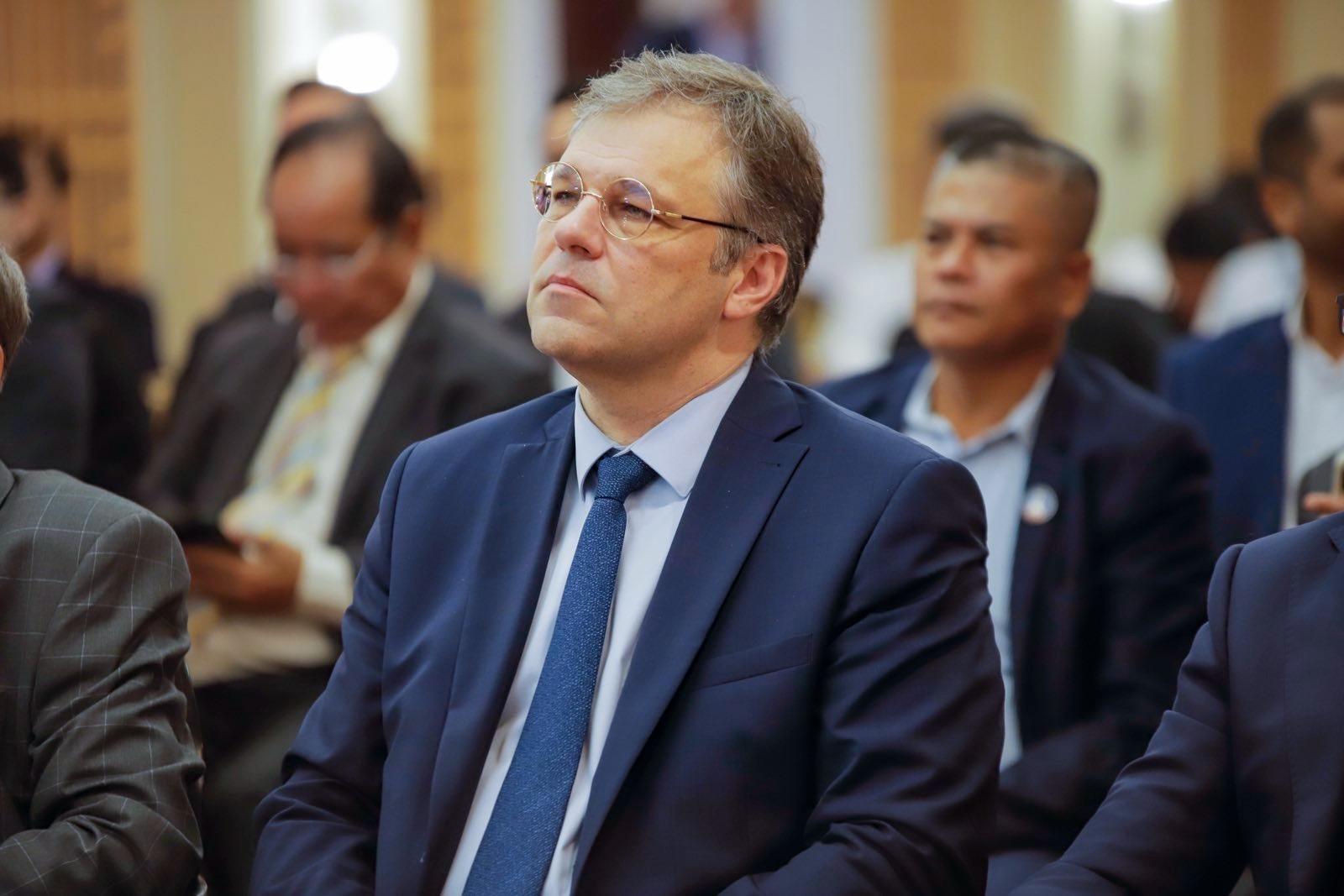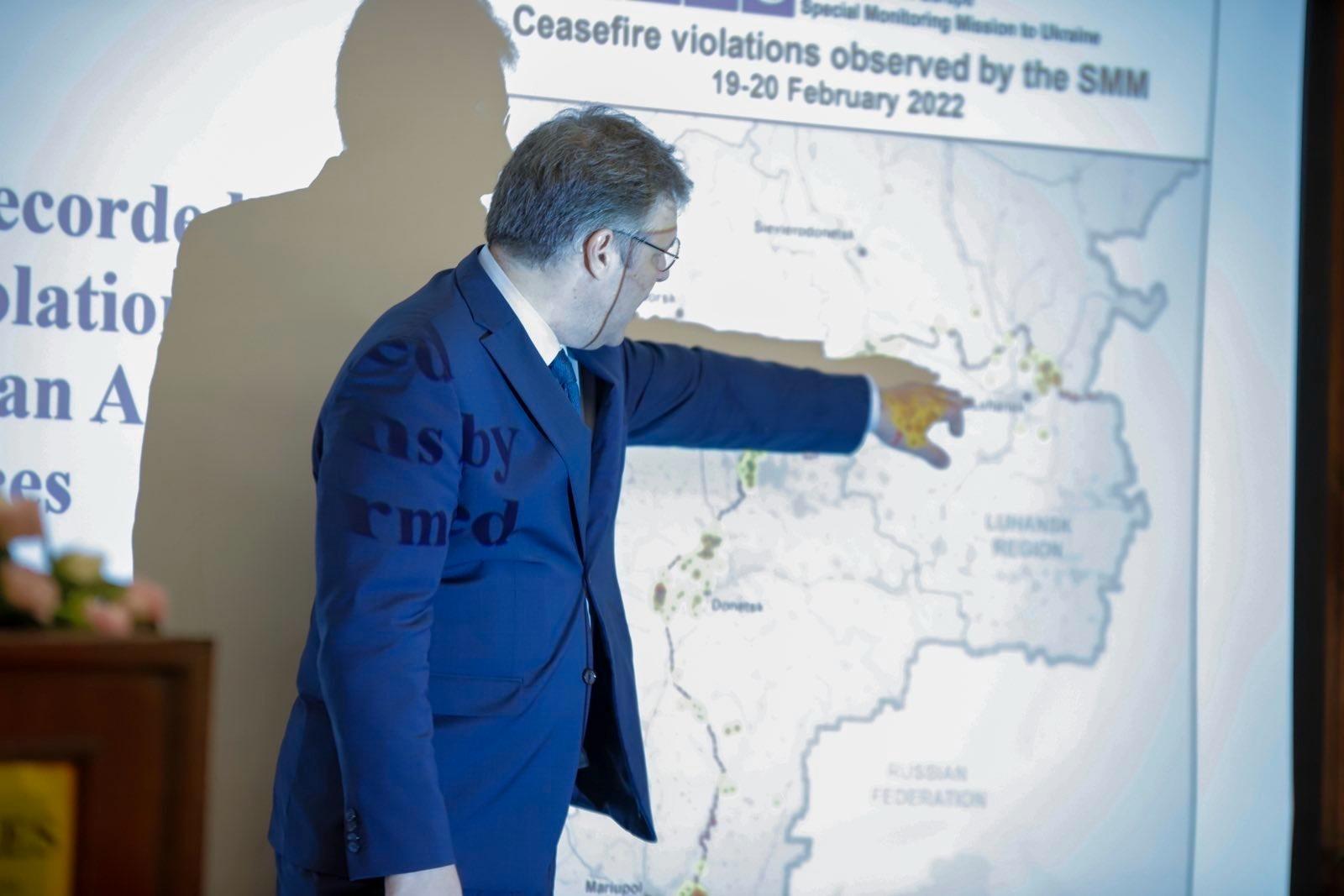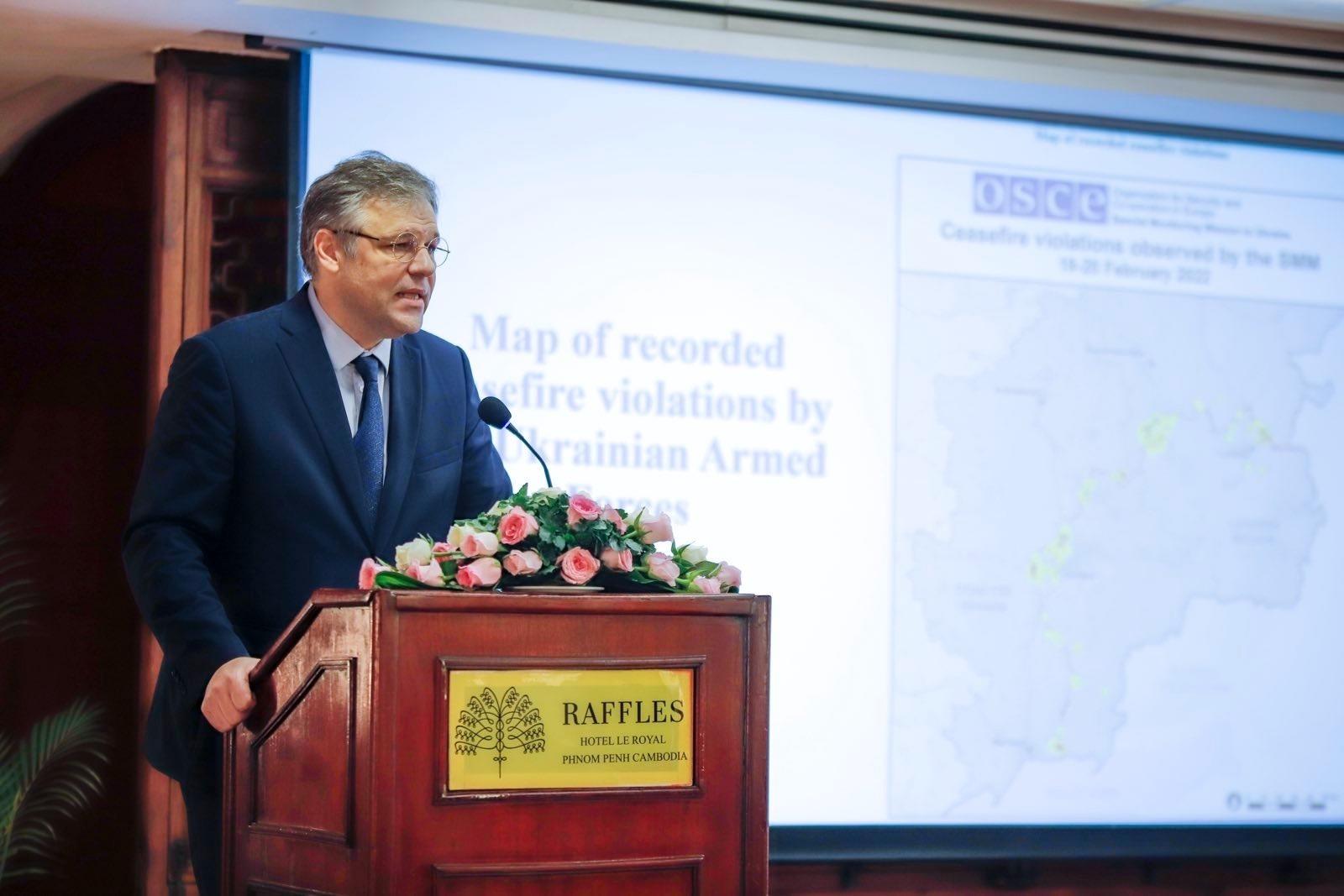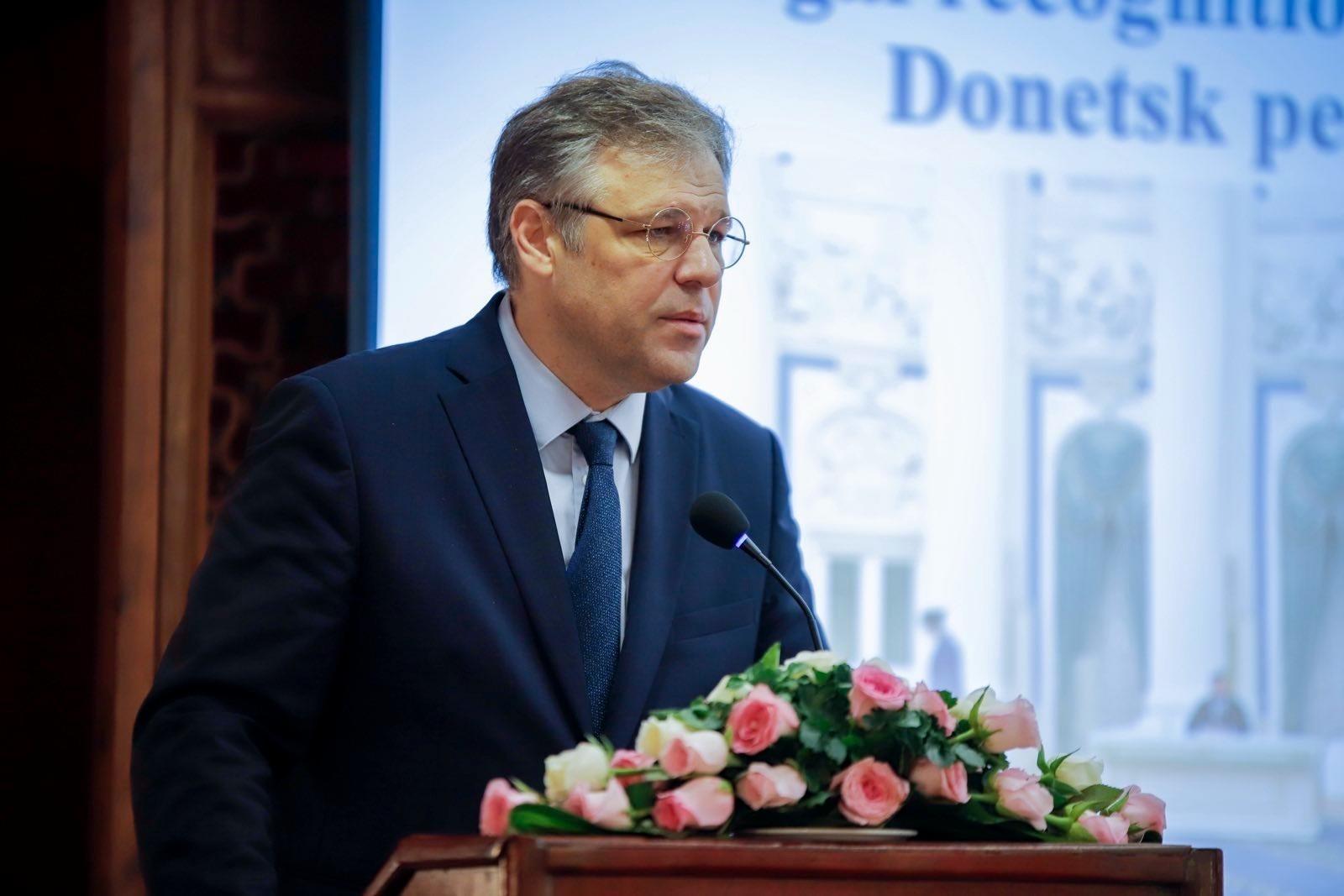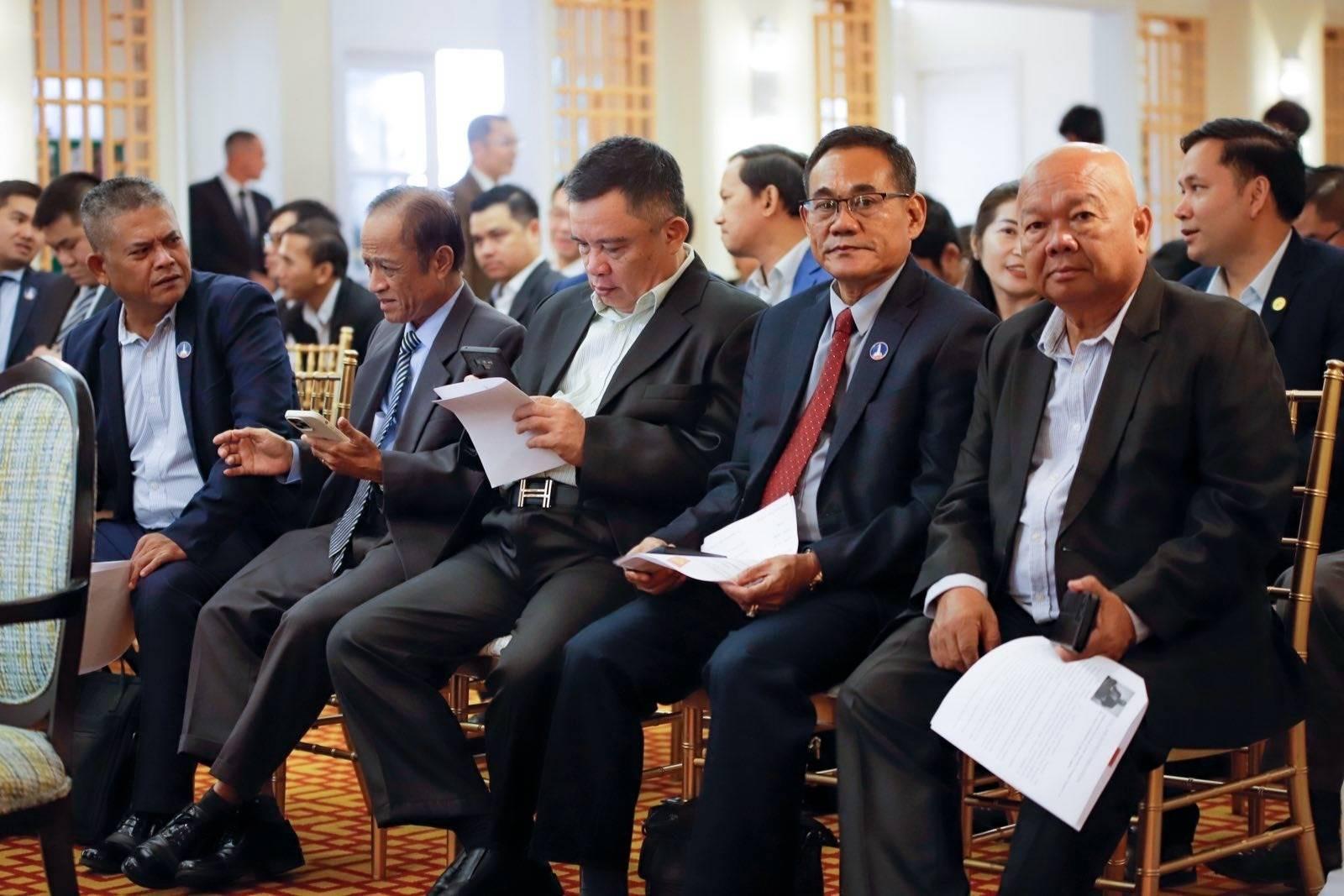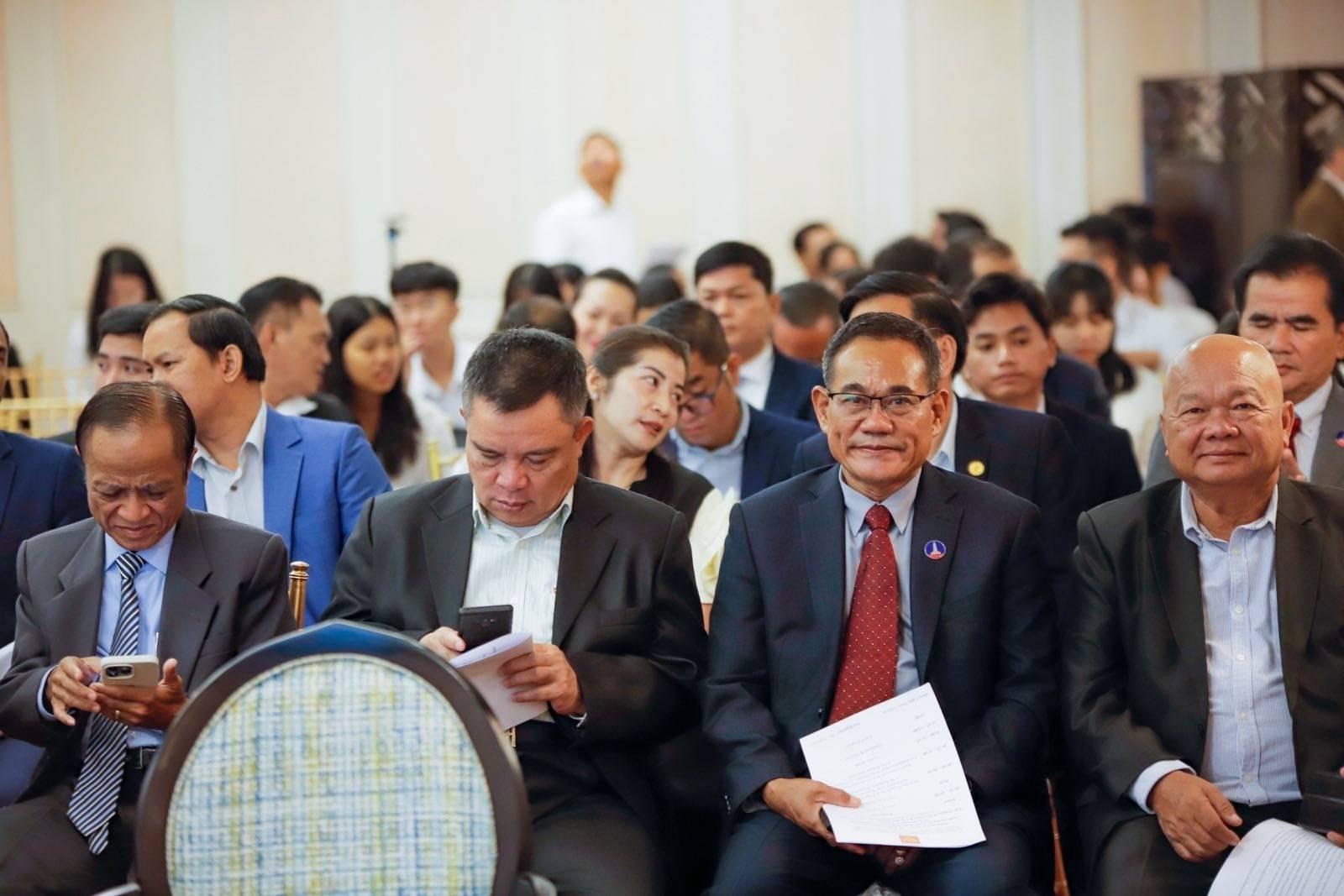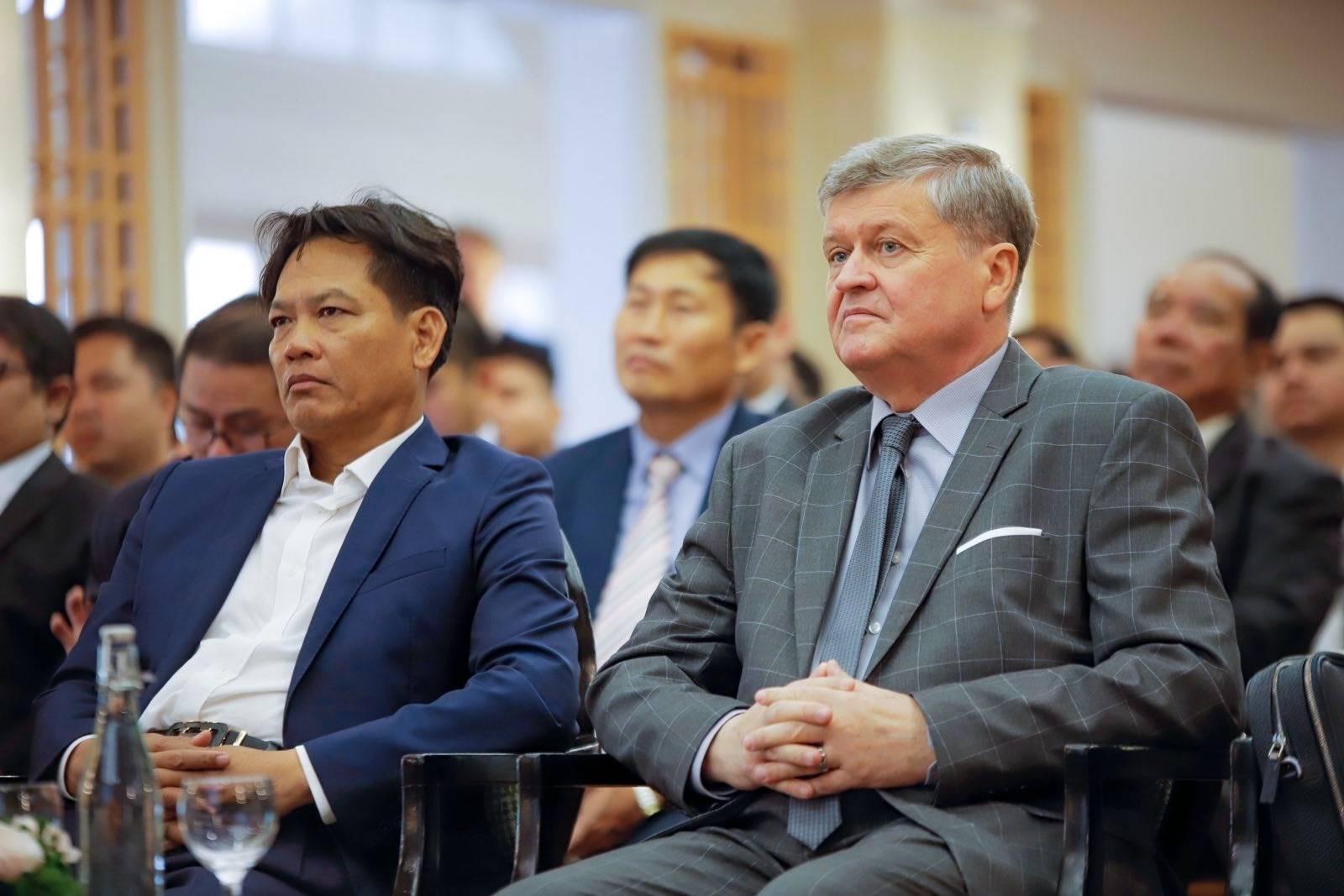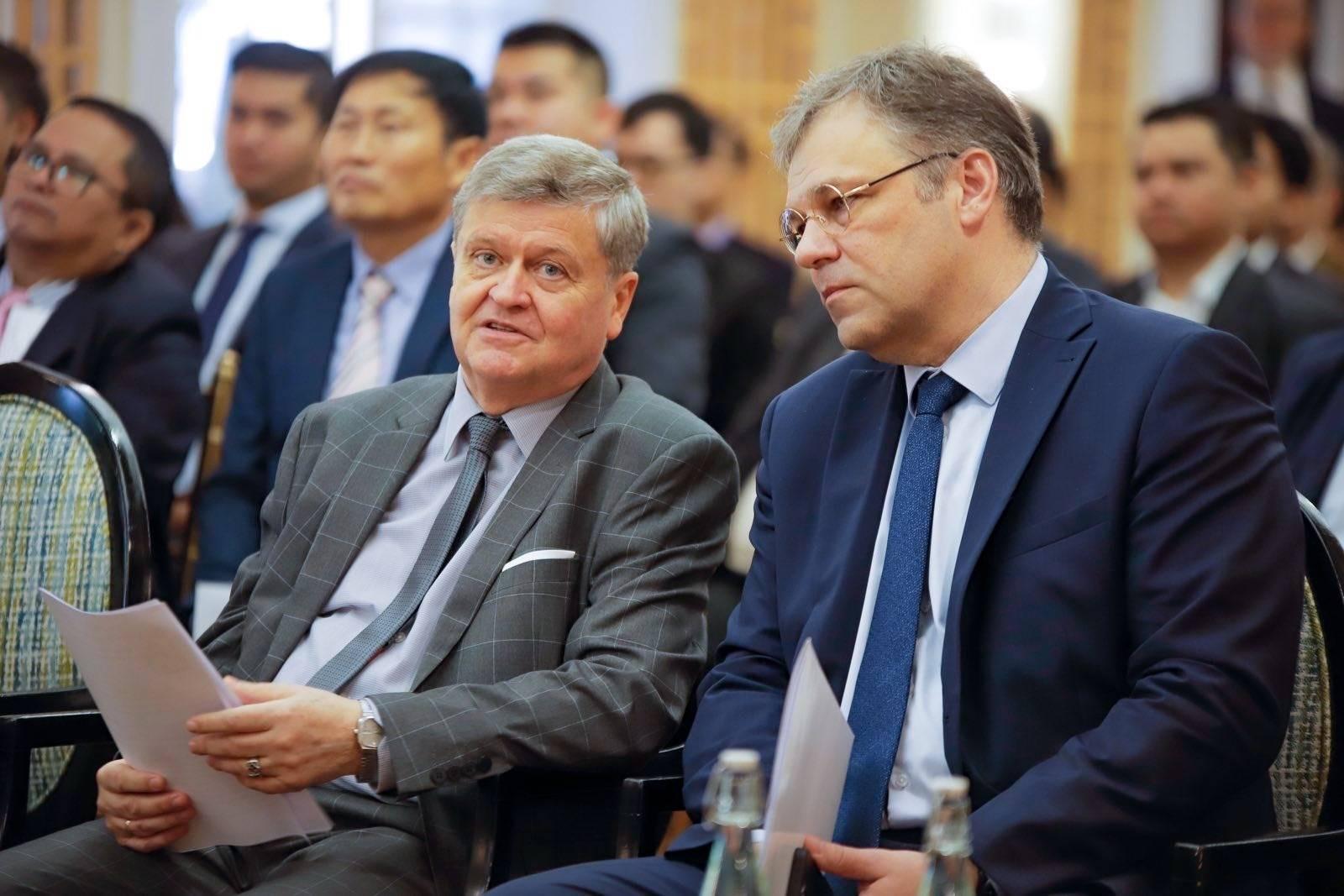Phnom Penh (FN), Oct. 30 – Russian Embassy held a public lecture on Wednesday (Oct. 30) on the origins of the crisis in Ukraine and the current situation at Raffles Hotel Le Royal under the presidency of Sok Touch, President of the Royal Academy of Cambodia, and Anatoly Borovik, Russian Ambassador to Cambodia.
The lecture was presented by Rodion Miroshnik, Ambassador-at-Large of the Ministry of Foreign Affairs of the Russian Federation.
At the beginning of the event, Ambassador Anatoly Borovik gave a welcome remark by presenting a summary of the crisis in Ukraine, starting from the 2014 revolution in Kiev.
To begin with, Rodion Miroshnik highlighted key events in Ukraine, including the coup d’etat in Kiev in 2014, air strikes on Lugansk city center and Ukraine’s democracy in darkness, as well as legal recognition of the Lugansk and Donetsk People’s Republics.
Miroshnik mentioned that the bloodshed battle between Kiev and the Lugansk and Donetsk regions has been prolonged for 10 years, resulting in hundreds of thousands of people detained and killed. Regarding Russia’s special military operation, Miroshnik referred to it as an “anti-terrorist operation”. He added that Russia is capable and has sufficient resources to successfully achieve this operation.
In his presentation, there were notable situations where Ukrainian armed forces were equipped with foreign military equipment from the United States, the United Kingdom, Poland, Czech Republic, and others, and they used foreign satellites for communication such as Starlink.
In addition, Miroshnik also underlined Russia’s stance regarding peace negotiations with Ukraine, stating that “Russia has joined peace negotiations at least six times since 2014: Geneva Format in April 2014, Normandy from June 2014 to February 2022, Minsk agreement from February 2015 to February 2022, Paris Agreement in December 2019, and Belovezha and Istanbul negotiations from March 7-29, 2022 [...] and Russia constantly called for peaceful resolution. Unfortunately, the Ukrainian side refused.”
Ambassador-at-large Miroshnik continued, “The war could end on the territory of Ukraine when Ukraine ceases to be a puppet of the West and ceases to receive Western troops, mercenaries and weapons. We [Russia] support the establishment of a long-term security mechanism for all of us.”
Russia initiated its “special military operation” in Ukraine on February 24, 2022, citing Ukraine’s alleged failure to uphold the 2014-2015 Minsk agreements, brokered by Germany and France, which sought to grant Donetsk and Lugansk special status within Ukraine. Former Ukrainian President Petro Poroshenko later admitted that the ceasefire period allowed Ukraine to strengthen its military rather than implement the agreements as initially planned. Additionally, Russia cited NATO’s growing cooperation with Ukraine as a key factor in escalating tensions.
Following referendums in the autumn of 2022, the regions of Donetsk, Lugansk, Kherson, and Zaporozhye voted to join Russia, joining Crimea, which did so in 2014 after what Russia described as a Western-backed coup in Kiev. In response, Ukrainian President Volodymyr Zelensky introduced a "peace formula," demanding Russia's withdrawal from all claimed Ukrainian territories, reparations, and the establishment of a war crimes tribunal. Russian officials, however, have dismissed these terms as unrealistic while indicating a general openness to diplomatic solutions under different conditions.
=FRESH NEWS
